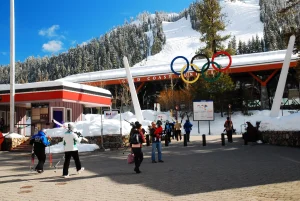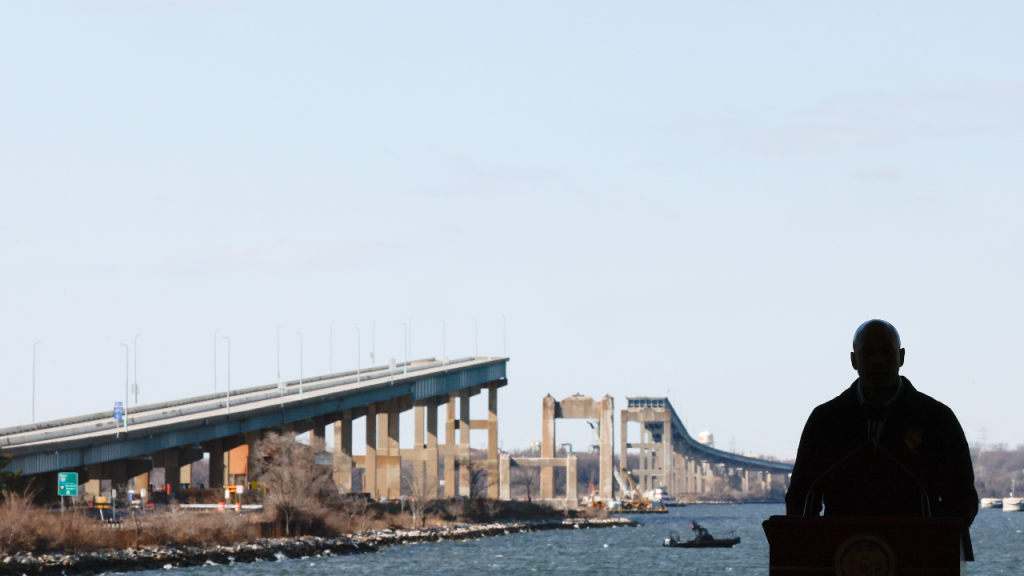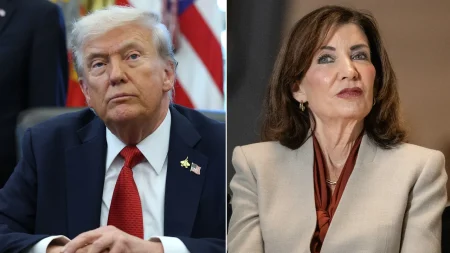From War of Words to High-Stakes Standoff: Trump and Moore Clash Over Baltimore
The heated exchange between Maryland Governor Wes Moore and President Donald Trump has escalated dramatically, transforming from verbal sparring about Baltimore’s crime statistics into a consequential dispute with potentially far-reaching economic implications. What began as political rhetoric has now evolved into a threat to withhold crucial federal funding for the Francis Scott Key Bridge reconstruction—a vital infrastructure project for Maryland and the entire eastern seaboard’s shipping economy. The bridge, which collapsed last March when a container ship lost power and struck it, serves as a critical gateway for the Port of Baltimore, one of the East Coast’s busiest shipping hubs supporting thousands of jobs and billions in trade.
The confrontation intensified when President Trump took to social media, declaring he might reconsider the federal funding promised for the bridge reconstruction, estimated at $1.9 billion. “I gave Wes Moore a lot of money to fix his demolished bridge. I will now have to rethink that decision,” Trump posted on Truth Social. This statement came after Moore invited the President to join a public safety walk through Baltimore—an invitation Trump rebuffed, suggesting he “would much prefer that he clean up this crime disaster before I go there for a walk.” Trump further escalated tensions by threatening to deploy National Guard troops to Baltimore, similar to recent actions in Washington, D.C., where he claims federal law enforcement presence has transformed the capital from a “hellhole” into a safe environment, resulting in over 700 arrests since August 11.
Governor Moore’s administration responded forcefully to these threats, emphasizing the national significance of the bridge reconstruction project. “President Trump’s attack threatens this bipartisan agreement that is a win for port workers, truckers, small businesses, service members, and working families throughout Maryland and across America,” a spokesperson stated. The Governor’s office highlighted that construction has already begun and warned that withdrawing federal support would “cause irrevocable damage to the national economy and to the entire State of Maryland.” Moore’s team dismissed Trump’s crime rhetoric as “blissful ignorance, tropes, and 1980s scare tactics,” countering with claims that Baltimore has achieved its lowest homicide rate in 50 years.
The economic stakes of this political confrontation cannot be overstated. The Port of Baltimore supports approximately 20,000 jobs and underpins the operations of more than 900 businesses while handling about $7 billion in trade annually. Though it processes a relatively modest portion of overall U.S. trade—nearly 5% of imports and just over 3% of exports—the port plays an outsized role in specific critical sectors. It serves as the primary gateway for heavy machinery like bulldozers and tractors, and handles vital industrial materials, including nearly all of America’s tin imports and more than a third of its nickel supplies. These materials are essential components for electronics, steel production, and battery manufacturing. The port’s strategic connections to European and Asian markets further cement its position as a crucial link in international supply chains.
Without the promised federal funding, Maryland would struggle to cover the $1.9 billion price tag for rebuilding the Francis Scott Key Bridge, potentially delaying completion beyond the current 2028 target. Such delays would prolong disruptions for commuters, truckers, and shipping operations, creating ripple effects throughout the regional and national economy. The bridge, which sits at Baltimore’s harbor entrance, is not merely a local infrastructure project but a critical component of the East Coast’s transportation and logistics network. Its reconstruction timeline directly impacts the efficiency and competitiveness of American trade, particularly in specialized sectors where the Port of Baltimore plays a dominant role.
This escalating conflict between federal and state leadership highlights how political disputes can rapidly transform into concrete policy decisions with far-reaching economic consequences. As reconstruction efforts continue amid this uncertainty, Maryland officials have vowed to “move full steam ahead” despite the funding threats, recognizing the bridge’s vital importance to the national economy. Meanwhile, the administration’s deployment of federal law enforcement and National Guard troops in Washington, D.C.—which Trump has positioned as a model for addressing urban crime—raises questions about the boundaries of federal intervention in state and local governance. As both sides dig in, the future of the Francis Scott Key Bridge reconstruction hangs in the balance, along with the economic security of thousands of workers and hundreds of businesses that depend on the Port of Baltimore’s continued operations.













